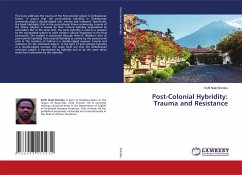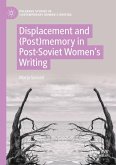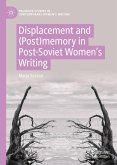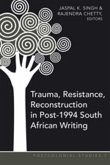This book addresses the trauma of the Post-colonial subject in Zimbabwean fiction. It argues that the post-colonial hybridity in Zimbabwean community plays a double-edged role: trauma and resistance. Specifically, the book highlights that in the post-colonial Shona community, trauma of the Shona subjects is caused by their cultural hybridity engendered by colonialism. But at the same time, the same hybridity is used as a weapon by the traumatized subject to resist western cultural hegemony in the local community. The analysis is conducted through Homi K. Bhabha's view of post-colonial hybridity. Post-colonial hybridity as coined by the postcolonial critic in The Location of Culture is a double-edged weapon: trauma and resistance for the colonized subject. In the light of post-colonial hybridity as a double-edged concept, the study finds out that the Zimbabwean colonized subject is traumatized by hybridity and at by the same token saved from colonialism by this hybridity.
Bitte wählen Sie Ihr Anliegen aus.
Rechnungen
Retourenschein anfordern
Bestellstatus
Storno








